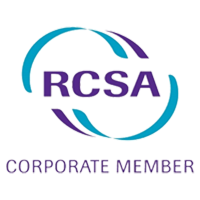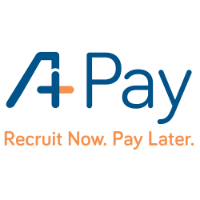Read below our latest article from REINSW
Interviews are hard. They are like your first date and your first day of school condensed into thirty minutes in which you have to share your achievements without boasting and prove you’re a good person to someone you’ve just met.
Like we said, they are hard. But have you ever thought about what it feels like to be on the other side?
Conducting sound interviews is an important part of any business, but it is critical in real estate.
The person will represent your agency. They will be a reflection of your brand and values, and they will directly engage with your clients.
For these reasons (and many more), you must be sure you’re hiring the right person for the role.
However, this doesn’t fall solely on the shoulders of the candidate. Director of Resolver Recruitment, Virginia Brookes, asks what are you doing to allow your candidate to give their best in the interview?
First impressions count
Brookes says first impressions count, and the impression you give is just as important as the impression you get.
“Don’t be late. In the same way you expect your candidate to be on time, so should you,” she says. “You knew about the interview in advance, so there is no real excuse.
“Not only is it disrespectful to your candidate, it can create an impression that punctuality isn’t highly regarded or valued in your office.
“For the same reasons, using your phone during an interview can be very disruptive – even if you’re answering to say you’re in a meeting. To allow the conversation to flow, it’s best to turn your phone off prior to the interview.”
Brookes says it’s also important to be prepared, saying you have to project the standards you expect.
“Don’t come to the interview unprepared. You expect your candidate to do their research prior to the interview and so, equally, so should you,” she says.
“Read their resume fully before meeting them and then use the interview as an opportunity to build on this.”
Not about you
Brookes says an interview is not an opportunity for you to talk about yourself and your company.
“Dialogue should flow back a forth throughout the interview,” she says. “Ensure you talk about the opportunity, the candidate and what they are looking for, as well as the company and your story.”
Speaking of things to talk about, Brookes says you should never speak badly about previous people in the role.
“Often you are conducting an interview because you want to replace a member of staff but resist the urge to talk badly about the previous or current person in the role,” she says. “If you do, you will only cause the new candidate to worry about their future within the team and leave a bad impression.”
Finally, Brookes makes it clear that you should never sugar coat a role.
“Of course, you want to up sell your company and the role, however be careful not to over promise,” she says. “This will only lead to higher voluntary staff turnover, as you’ve sold a dream that will never materialise. Remember to give all the facts about the role: the good and the realities.”
Right questions equals right candidate
Brookes says the right questions will determine the right candidate. Here is her go to list of interview questions:
- What has been your biggest achievement in your career or your current role? Why was it such an achievement and how did you do it?
- How do you judge your own success at work? Tell me about a time you have been unhappy with your success and why.
- Who has been your favourite manager and why? Tell me about their management style and what you liked most about their approach.
- Which job from your resume have you enjoyed the most and why?
- Tell me how you work as part of a team and what you contribute on a constant basis that keeps a team functioning well.
- Tell me about a time when you were given a job to do that you didn’t really understand – did you get it done and how?
- What is the most difficult part of your current role?
- Tell me how you cope with someone who is very upset, agitated or angry? Give an example of how you managed the situation.
- Talk me through a really difficult situation at work with a colleague and how you handled it?
While she doesn’t recommend asking every candidate every question, Brookes says asking a selection of these questions will help you understand the candidate’s work ethic and motivation.
“In asking these questions you will gain a better insight into how the candidate will relate to both you and your team, as well as how best to manage them,” she says.
A few other tips
Don’t judge a book by its cover – it’s an age-old adage, but it still rings true.
While first impressions are important (as we discussed), understanding why the candidate applied for the role and what they can bring to it is better. What a candidate is wearing generally has no bearing on their ability to succeed in a role.
Did you know playing with your hair and compressing your lips are signs of nervousness? So if your candidate seems superficial or a bit grumpy they might actually be reacting to the psychological stress of the interview situation (and the pressure to impress you).



